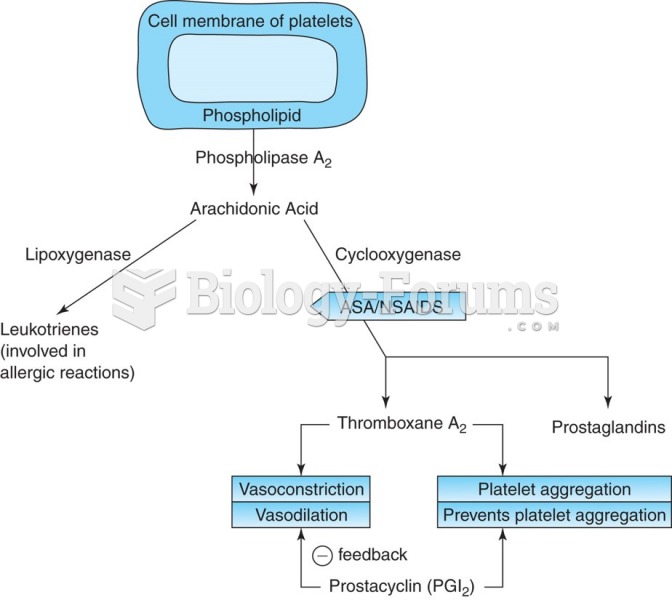Answer to Question 1
1, 3
Rationale 1: The most common adverse effects observed during high-dose therapy relate to the digestive system. By increasing gastric acid secretion and irritating the stomach lining, aspirin can cause pain, heartburn, and even bleeding due to ulceration. In some patients, even small doses can cause GI bleeding.
Rationale 2:High doses of aspirin are used to decrease inflammation.
Rationale 3: The most common adverse effects observed during high-dose therapy relate to the digestive system. By increasing gastric acid secretion and irritating the stomach lining, aspirin can cause pain, heartburn, and even bleeding due to ulceration. In some patients, even small doses can cause GI bleeding.
Rationale 4: Ataxia is loss of body movements.
Rationale 5: Hyperglycemia is not a common symptom from high doses of aspirin.
Global Rationale: The most common adverse effects observed during high-dose therapy relate to the digestive system. By increasing gastric acid secretion and irritating the stomach lining, aspirin can cause pain, heartburn, and even bleeding due to ulceration. In some patients, even small doses can cause GI bleeding.
Answer to Question 2
4
Rationale 1: Tylenol is an appropriate treatment for pediatric fever.
Rationale 2: Advil is an appropriate treatment for pediatric fever.
Rationale 3: Motrin is an appropriate treatment for pediatric fever.
Rationale 4: Aspirin is not an appropriate treatment for pediatric fever. Aspirin has been linked to the development of Reye syndrome.
Global Rationale: Tylenol, Advil, and Motrin are all appropriate treatments for pediatric fever. Aspirin is not an appropriate treatment for pediatric fever. Aspirin has been linked to the development of Reye syndrome.







